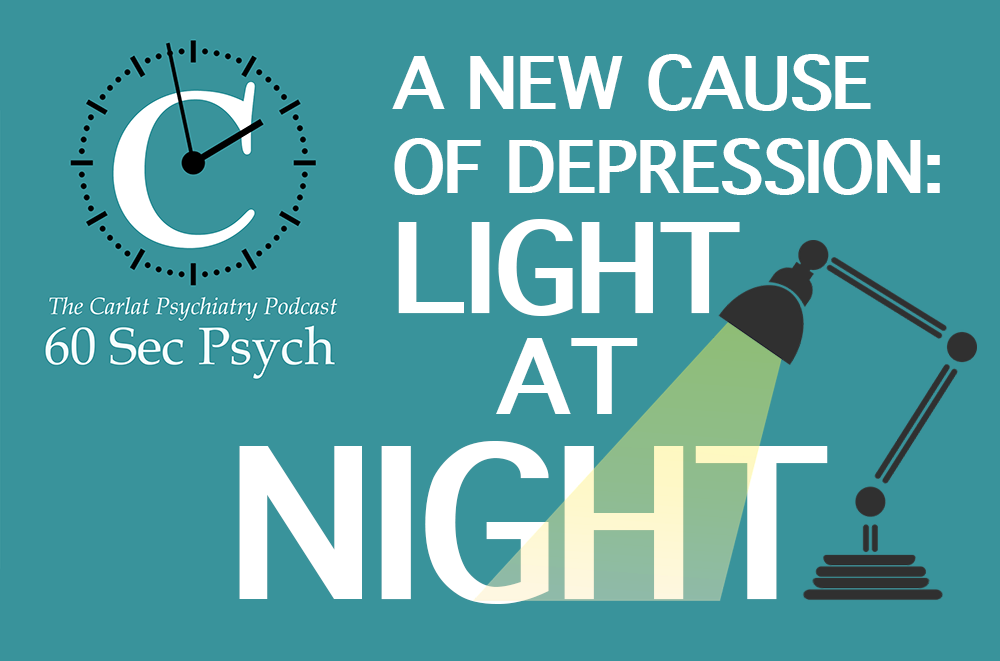A New Cause of Depression: Light at Night [60 Sec Psych]
, Volume , Number ,
https://www.thecarlatreport.com/#
Evening light is associated with so many health risks ─ cancer, diabetes, heart disease ─ that the AMA has a position statement on it. Psychiatrists may need to pay attention as well. It’s been linked to depression, mania, and poor cognition in epidemiologic studies, and this animal study confirms that. An K, Zhao H, Miao Y, et al. A circadian rhythm-gated subcortical pathway for nighttime-light-induced depressive-like behaviors in mice. Nat Neurosci. 2020;10.1038/s41593-020-0640-8. [Link]
Published On: 6/24/2020 Duration: 1 minute, 31 seconds Transcript: Evening light is associated with so many health risks ─ cancer, diabetes, heart disease ─ that the AMA has a position statement on it. Psychiatrists may need to pay attention as well. It’s been linked to depression, mania, and poor cognition in epidemiologic studies, and this animal study confirms that. Researchers randomized mice to 2 hours of blue light in mid day or at night. After 3 weeks, the evening light ─ but not the afternoon light ─ caused depressive behaviors ─ anhedonia and helplessness ─ even though it didn’t change their sleep or circadian rhythms. The effects were not due to changes in the visual part of the brain. Instead, the researchers linked it to a brain circuit that includes part of the mood center ─ the nucleus accumbens. The bottom line: we’ve known for 40 years that morning light helps depression, but evening light can make it worse, particularly the blue wavelengths that are prominent in digital screens and energy efficient bulbs. For more information check out our February 2019 interview with James Phelps on dark therapy, or our June 8th podcast. Got feedback? Take the podcast survey.




Leave A Comment
You must be logged in to post a comment.